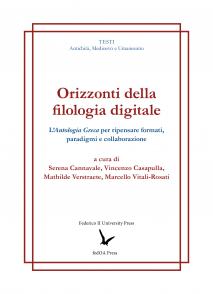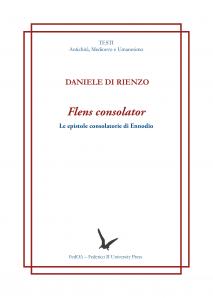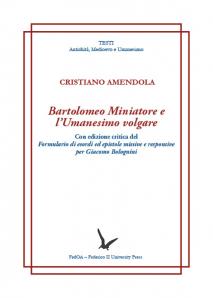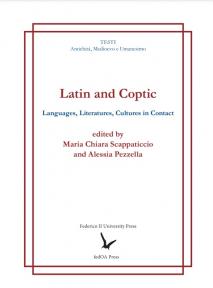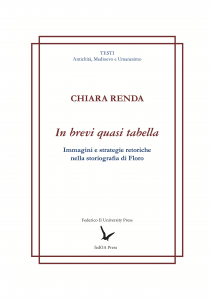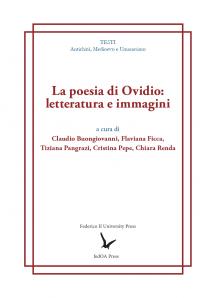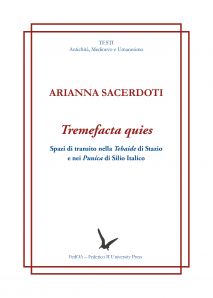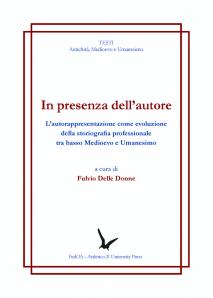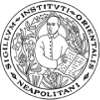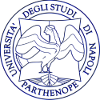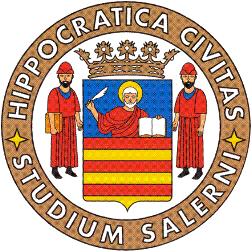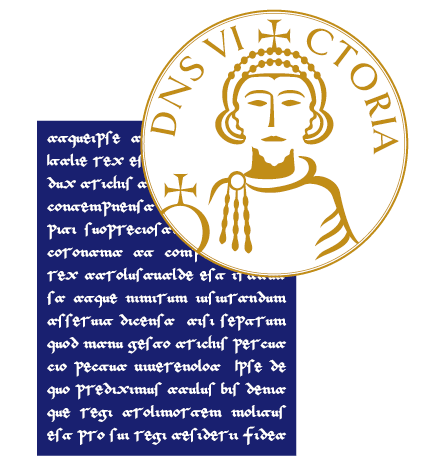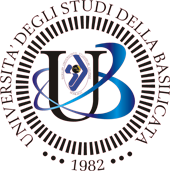FedOAPress - Texts
Publisher: FedOA - Federico II University Press
Series: Texts. Antiquity, Middle Ages and Humanism
Editor in chief: Fulvio Delle Donne (Univ. Napoli Federico II)
Board of Associate Editors: Giancarlo Abbamonte (Univ. Napoli Federico II), Arturo De Vivo (Scuola Superiore Meridionale), Giulio Massimilla (Univ. Napoli Federico II), Andrea Mazzucchi (Univ. Napoli Federico II).
Scientific Committee: Giancarlo Alfano (Univ. Napoli Federico II), Stefano Ugo Baldassarri (ISI Florence), Francisco Bautista Pérez (Univ. Salamanca, ES), Claudio Buongiovanni (Univ. della Campania L. Vanvitelli), Guido Cappelli (Univ. Napoli Orientale), Carmen Codoñer (Univ. Salamanca, ES), Aldo Corcella (Univ. Basilicata), Edoardo D’Angelo (Univ. Suor Orsola Benincasa, Napoli), Rosalba Dimundo (Univ. Bari), Paulo Jorge Farmhouse Simoes Alberto (Univ. Lisboa, PRT), Paolo Garbini (Univ. Roma Sapienza), Giuseppe Germano (Univ. Napoli Federico II), Massimo Gioseffi (Univ. Milano), Benoît Grévin (CNRS Paris, FR), Andrew Laird (Brown University, USA), Mario Lamagna (Univ. di Napoli Federico II), Marek Thue Kretschmer (Univ. Lorraine, Nancy, FR), Marc Laureys (Univ. Bonn, DE), Rosa Maria Lucifora (Univ. Basilicata), Andrea Luzzi (Univ. Roma Sapienza), Brian Maxson (East Tennessee State University, USA), Andrea Mazzucchi (Univ. Napoli Federico II), Marianne Pade (Accademia di Danimarca, DK), Raffaele Perrelli (Univ. Calabria), Giovanni Polara (Univ. Napoli Federico II), Antonella Prenner (Univ. Cassino), Chiara Renda (Univ. Napoli Federico II), Alessandra Romeo (Univ. Calabria), Maria Chiara Scappaticcio (Univ. Napoli Federico II), Claudia Schindler (Univ. Hamburg, DT), Francesca Sivo (Univ. Foggia), Marisa Squillante (Univ. Napoli Federico II), Anne-Marie Turcan-Verkerk (CNRS IRHT, Paris, FR).
Languages: Italian, English, French, German, Spanish
Topic and Contents of the Book Series: There is a continuous thread linking works of literature from Classical Antiquity to Humanism. Sometimes this tradition seems to break and stop; yet, before long, it surfaces again and resumes its journey. Even in the darkest centuries, grammar, rhetoric, and poetry always found a reference point in the ancient, classical canon, even if some of those authors were mere names, without any tangible trace left of their original personalities.
This editorial series focuses precisely on the continuity and fractures – whether real or apparent – within this very tradition by publishing and discussing ancient, medieval and humanistic texts (especially in Greek and Latin, but also in Romance languages), in the conviction that these works (as well as their explicit and implicit sources) reveal the cultural and literary background to the times when they were composed. Philology is our main means of literary analysis, so as to provide readers with new critical methods and use them to interpret, contextualize, and translate texts. Likewise, critical editions will not only aim at offering texts but also stimulating further discussion and research.
Peer review process: All published articles are double-blind peer reviewed at least by two referees selected among high-profile scientists, who are chosen from both inside and outside the reading committee: at least one is external. The articles of the members of the Board of Associate Editors and of Scientific Committee board are managed by third parties.
Author Guidelines: Download PDF
Referee Report Form: Download Word; PDF


